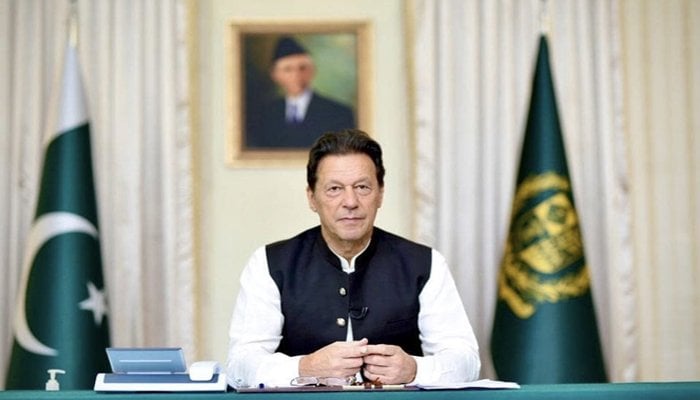[ad_1]

- SNC to be released in three phases, the first phase releasing tomorrow.
- SNC involved a consultative process with stakeholders from the public and private sectors.
- A separate curriculum has been developed for minority students, called Religious Education.
ISLAMABAD: Prime Minister Imran Khan will launch the first phase of the Single National Curriculum (SNC) for grades Pre-1 (Kindergarten) to grade 5 tomorrow.
The SNC has been developed by the National Curriculum Council and Ministry of Federal Education and Professional Training, in consultation and collaboration with education departments of all federating units of the country.
The SNC is being developed and released in three phases:
- In Phase-I, the curriculum for grades Pre-1 to 5 (the academic year 2021-22) will be implemented.
- In Phase-II, the curriculum for grades 6 to 8 (the academic year 2022-23) will be implemented.
- In Phase-III, the curriculum for grades 9 to 12 (the academic year 2023-24) will be implemented.
Key considerations in SNC
Certain key considerations have been outlined for the development of the SNC. These considerations include:
- Teachings of the Holy Quran and Seerat-e-Nabwi.
- Pakistan’s constitutional framework.
- National policies with their aspirations and standards.
- Alignment with Sustainable Development Goals (SDGs).
- Quaid-e-Azam and Allama Iqbal’s vision.
- A focus on values.
- Respect for diversity in cultures and religions.
- Development of 21st-century skills including analytical, critical, and creative thinking.
Multi-step curriculum development process
The process for developing the SNC entailed a comparative review with curricula from other countries and consensus building within Pakistan following a consultative process.
As the first step, multiple comparative studies were conducted to align an SNC draft with international standards. These standards were taken from curricula followed in Singapore, United Kingdom, Malaysia and Indonesia.
Findings from the international curricula were incorporated in the SNC draft.
The second step involved a consultative process with stakeholders from the public sector, private sector, madrassas, and the cantonment and Garrison boards across Pakistan. Provincial and area workshops were subsequently held in all federating units.
Finally, a National Conference was held in Islamabad where a consensus on the final draft of the curriculum was secured.
The model textbooks based on the SNC, as well as the teacher training modules, have been developed for grades Pre-1 to 5. These have been shared with all federating units to support the timely implementation of the SNC on ground.
The curriculum documents for SNC Phase-II (Grades 6 to 8) are close to completion, following a similar consultative process. The curriculum will be ready for implementation in the upcoming academic year 2022-23.
The time in between will be utilised to make quality textbooks for all schools, with participation from the public and private sectors as needed.
Finally, Phase-III (grade 9 to 12) will be developed and implemented in the years 2023-24.
Components of SNC
Under the SNC, English will be taught as a language with a focus on skills.
In Islamiat, new themes of “Muamilaat” (social matters) and “Islam aur daur e hazir ke taqazay” (Islam and requirements of the modern world) have been added. Experts from all factions of Ittehad Tanzimat Ul Madaris Pakistan were part of the consultation for the Islamiat section of the syllabus.
Furthermore, to ensure intra-faith harmony, the SNC has also focused on what is common between different schools of thought and has avoided promoting religious differences.
The practical aspects of the life of Prophet Muhammad (PBUH) have a special focus in the SNC, particularly in terms of how they apply to the lives of the younger generation. The aspects include taking care of the planet, water conservation, rights of the elderly, citizenship, respect for religious and cultural diversity, and values of honesty and hard work.
For students from minority faiths, a separate curriculum with the title Religious Education has been developed. Five major religions are represented, with individual curriculum for each including Christianity, Hinduism, Sikhism, Baha’i and Kalash.
Social Studies has been developed to encourage patriotism, global citizenship, human rights, and peace.
Sindh rejects SNC
Meanwhile, the Sindh government has rejected the SNC and no official from the province will be present during the launch ceremony tomorrow at the Prime Minister Office, sources informed Geo News.
Sindh’s education minister and education secretary were invited to attend the ceremony, however, the provincial government has prohibited all officials from attending the event, saying that after the 18th amendment, education is a provincial matter, sources said.
— With additional input from Rana Javaid in Karachi.
[ad_2]



